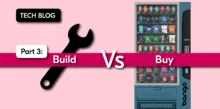Coverage from BlackBerry Dev Conference
by Sukey Miller

Watching RIM’s CEO Jim Balsillie at their annual DevCon yesteday, he came across as the most thoughtful leader of the major players in the smartphone market. He listened to questions carefully. More pauses, less polemic.
Jim believes profoundly in the idea of ‘constructive engagement’. It’s a cornerstone of his thinking.
RIM’s story is about the skill and serendipity of identifying a possibility in a market that had eluded others. And then building that possibility into a global business and iconic brand. I expect Jim will be the first person to say “I couldn’t have done it alone”. Beyond the usual testament to team and talent, in the RIM worldview this statement is about the mutual gains from collaborating with a wide base of partners. The appeal of the BlackBerry has generated billions of dollars through carrier distribution channels. Every BlackBerry in use generates a continuous stream of revenue to the carrier.
But how will the company that identified and championed this once novel device – in a once new market – fair today? Now it is playing in a market seen as the most important digital platform by the world’s biggest software companies and device makers. The value of the mobile content market is no secret. Everybody wants in.
I think the difference is that RIM doesn’t set out to “own the market” – the sort of boisterous language that appeals to some of its competitors. Instead, it sets out to catalyze the market. It doesn’t go for exclusives. It doesn’t try to define the business models. Instead, the company’s philosophy seems to be ‘you’ve got the ideas – we’ll give you the platform and the tools to make them happen’. This time round, it’s going to be a different kind of challenge. It’s no longer a battle to persuade partners that a market for sophisticated mobile devices exists. Now it’s a fight to persuade the market (that it has done much to create) that RIM still has the platform for its partners to succeed.
For Bango and our customers, the critical part of the equation is around mobile commerce. If RIM can persuade content owners that the BlackBerry platform is the best place to do business in the digital world, it will have the secret sauce that drives commerce to its platform. This is an area where RIM can differentiate. It is an area where the more glamorous or muscular competition is currently weak. And if RIM’s participation in mobile commerce focusses on the tools and technology that give its partners choices in how to monetize a mobile audience, it will attract both the biggest and the most original digital businesses to its platform (these adjectives need not be mutually exclusive).
Jim Balsillie’s constructive engagement philosophy is less prescriptive than his competitors’ ‘certainties’ over how content should be delivered, monetized, billed. Instead it shifts the power to the partners. It gives RIM the potential to be the most open channel for developers to get their ideas to market, and for brands to launch new business models. Giving these choices is exactly what drove the first wave of e-commerce. The tide is turning consumer dollars away from PC to mobile-initiated commerce. From listening to its CEO, RIM seems determined to bring its partners into the swim.
![]()
Subscribe to our newsletter
Get the latest subscription bundling news and insights delivered straight to your inbox.




